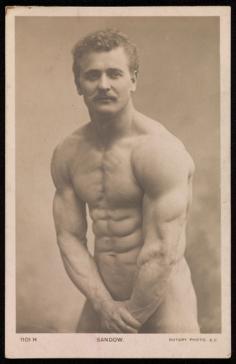Current economic thinking holds that technology has replaced “muscle power” as a driving force of modern economies. Technological innovation is imagined to have driven out unproductive muscle power, initiating economic growth as a result. In The Shock of the Old (2007) David Edgerton has shown how horses and oxen remained critical to the provision of power in an industrial era which supposedly made them obsolete. Taking its inspiration from Edgerton, this project will further explore the ongoing value and evaluation of human muscle in modern economies. Besides demonstrating that muscle power endured in modernity as a critical form of labor, this project will also seek to open up muscle’s meanings in relation to work and power.
A common view of muscle work today considers it as equivalent to a form of mechanical work done by machines. Muscle action essentially involves inputs of energy or fuel and outputs of force and work. Historians share a similar view of muscles, but such an approach obscures the rich meanings given to muscle historically which this project seeks to restore. I examine muscle through a variety of medical, cultural, folk, and scientific registers as well as in the contexts of private gymnasiums, slacker and nerd culture, and health initiatives focused on obesity. Restoring a diversity of meaning to muscle, I argue, offers a fresh perspective on these cultural and public health issues in addition to enriching an often impoverished economic history of modernity.

